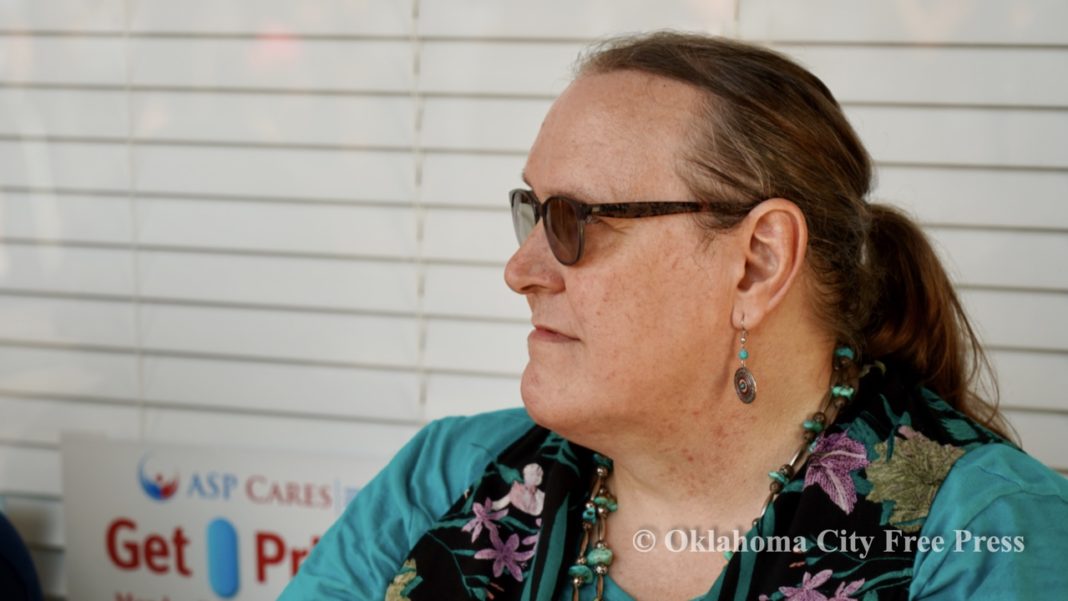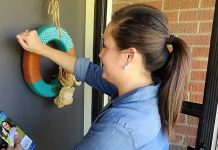Last Updated on January 5, 2024, 12:57 AM | Published: July 3, 2021
Paula Sophia Schonauer, LCSW, continues a serial memoir. If you haven’t read the earlier parts of this series, look at the bottom of this page.
I had always felt sympathy for Judas, caught in the grip of destiny yet held responsible for his actions.
It seemed he had no choice, that his betrayal of Jesus, foretold the evening before, was part of the divine plan. He was trapped. To refuse betrayal was to defy God’s will, but to betray Jesus was to doom an innocent man to a cruel punishment and death.
It was a set-up.
Feeling so wrong about myself, I thought I had been set up for failure, that there was no way to please God, no way to please my parents, no way to find happiness and approval, purpose and reward.
It was beyond a matter of behavior. Despite efforts at being a good boy, I could not manage enough success to feel esteemed. I had to go beyond behavior, beyond even prayer to feel the kind of acceptance I so earnestly desired. After being taught that one need only pray with faith and contrition to receive a blessing from God, I sincerely pleaded to wake up a girl. Failing that, I prayed for wholeness as a boy, to be healed of my broken and confused identity, but I remained a confused boy, afflicted by silence.
It seemed evident, then, that there had to be some sort of sacrifice. That’s how Jesus could go to hell and escape. He was a sacrifice, the Lamb of God. Right? And when God became incarnate, he knew he was going to die. Could that be considered some kind of suicide mission? And when Jesus knew his actions were going to hasten his death, he did them anyway.
Of course, I could not articulate these questions as a ten-year-old, but I did have such ruminations, pondering fate and purpose, meaning and sacrifice, feeling isolated from the rest of humanity because nobody I knew, nobody I had ever heard about, had the feelings and thoughts, the confusion and turmoil I had.
I looked at my homemade crucifix, Geronimo affixed to those crossbeams of wood, nails piercing his hands, and I knew Jesus must have died from blood poisoning and pain (not knowing that crucifixion is actually a slow death by asphyxiation).
I examined my hands, the lines, the delicate skin at the center of my palm, the web of flesh at the base of my fingers. I had never really looked at my hands before, what wondrous and delicate things they were, so capable of harm and healing, open and shut depending upon circumstance. Ten fingers, an opposable thumb, the ability to grasp, to throw, to caress, to strike. I was ten years old, one year for each appendage, and ten tens made a hundred, ten hundreds a thousand, on and on.

Hands are the foundational implements to solving every problem, from mathematical extrapolations to building a lean-to, to wielding a sword, to writing a letter… To destroy the healing hands of Jesus – that’s what killed him.
Mom went to Bingo one evening, leaving our neighbor’s daughter, Cindy to babysit. She was one of the girls who had heard me speak out loud about wanting breasts, so I was very shy around her, afraid of her judgment and ridicule.
My brother and sister seemed to engage her easily, excitedly showing her how the living room floor had been completed, new wood visible between carpets rolled out to cover the splinter-prone roughhewn edges between boards. We actually had furniture in the living room, a television, some lamps, and a couch.
Cindy’s friend Kim came over to be with us, Kim the chubby girl with a pretty face, the noticeable breast development, someone not much older than I was but much more mature, it seemed. I sat on the stairs peering at them through the wooden columns, still intact after the fire but with burnt edges and embedded soot.
Cindy and Kim were discussing hypnosis, a show they had seen at school, and about the funny things they had witnessed their fellow students perform while under the influence of the hypnotist.
“He made David think he was a chicken,” Kim said. She laughed. “And Joanna, she thought she was Alice Cooper.”
Cindy looked serious, full of awe. “The future selves were so creepy. That one guy didn’t say anything, and the hypnotist said that meant he would be dead.”
“Yes, and when Jenny sounded so old, saying her daughter was an Olympic medalist ant that she was so proud.”
I moved closer, intrigued. Cindy had a pendant attached to a rope of silver or stainless steel. She held it in front of Kim’s eyes and chanted, “You’re getting sleepy.”
Kim couldn’t keep herself from giggling.
“Come on, concentrate.”
Kim’s giggles bubbled over to full-blown laughter. “Sorry, I’m nervous.” She looked at me, noticing, perhaps, my earnest interest. “Do you want to be hypnotized?”
I don’t know if I gave consent, but I found myself seated on the couch already under a spell, charmed by the girls’ attention more than the power of suggestion.
I laid down, watching the pendant swing back and forth before my eyes, relaxed and nervous at the same time, my mind praying this would work. If hypnosis could work, then maybe magic was something real, and if magic was real, then maybe I had hope.
I never lost consciousness. I heard everything Cindy said, Kim’s nervous giggles, and the rough and tumble antics of my siblings playing somewhere upstairs. I did lose my nervousness. It felt good to be included in a game these girls had devised. I basked in the attention.
“When I count to three,” Cindy said, “I want you to sit up.”
One. Two. Three. I sat up.
I stared ahead, feeling sleepy but aware.
“What should I make him do?”
Kim leaned toward Cindy and whispered in her ear. I could still hear what she said, “He wants to be a girl, so ….”
Cindy laughed. “When I snap my fingers, you’ll be a girl from now on.”
After that, they gave me my sister’s Raggedy Ann doll and teasingly referred to me as Paula, using she and her pronouns when they referred to me. The name, those words – they felt so affirming, and they didn’t tease me, just expressed amusement at how I behaved, my lack of protest.
“Maybe he’s really hypnotized,” Cindy remarked.
“Yeah,” Kim said.
A set of headlights illuminated the side of the house then shifted to shine down the driveway. I heard the crack of tires on gravel, the squeak of breaks. Mom was home.
Cindy never “un-hypnotized” me. She forgot the game entirely while greeting Mom, as did Kim. I slowly pushed the Raggedy Ann doll to the end of the couch to avoid a misunderstanding – or actually, the correct understanding.
Mom paid Cindy and said goodbye to Kim. Then, she went upstairs to yell at my brother and sister, never seeming to notice me.
A sadness overwhelmed me. The magic of hypnosis had not worked. I was not a girl after all. Another prayer ignored. I wandered into the kitchen, paused at the basement door, opened it, and stared at the darkness. I walked down the stairs as if in a trance, uncharacteristically unafraid.
A few feet from the bottom of the stairs I found a string hanging down, anchored by a nut tied to the bottom. I gave a slight yank, and a light bulb clicked on, illuminating the basement except for the dark shadows in the corners. Dad had left some wood down thereafter finishing the living room floor, a box of nails, a hammer.
I grabbed a piece of wood, a nail, the hammer, and I placed the nail at the center of my left hand palm. I took the hammer, rested it on the head of the nail, raised it a couple of feet, and slammed it down.
The nail pierced my palm, went through the back of my hand, and bit into the wood. It didn’t hurt, not the way I thought it would, but when I lifted my hand, the piece of wood came with it, the weight of the wood attached to my hand was surreal and unnatural.
I felt nauseous, and then, I passed out.
This post is the latest of a serial memoir Paula Sophia is writing about her life. We are honored that she chose Free Press as the platform. The following links are to earlier parts of the memoir.
- Manhood, from the inside out — Memoir and Mythology
- Part 2 — Cubby Hole
- Part 3 — Magic Carpet Cocoons
- Part 4 — Snips and Snails and Puppy-Dogs’ Tails
- Part 5 — Mirror
- Part 6 – Deep Water
- Part 7 – Limbo
- Part 8 – Dissociation
- Part 9 – Shame
- Part 10 – Judgement Day
- Part 11 – Inferno
- Part 12 – Haunted
- Part 13 – Did I say that?
- Part 14 – The end times
- Part 15 – Alone again (naturally)
- Part 16 – Welcome to Grey Town
Guest Columnist Paula Sophia is a licensed clinical social worker in Oklahoma City and a former Oklahoma City Police Officer.







